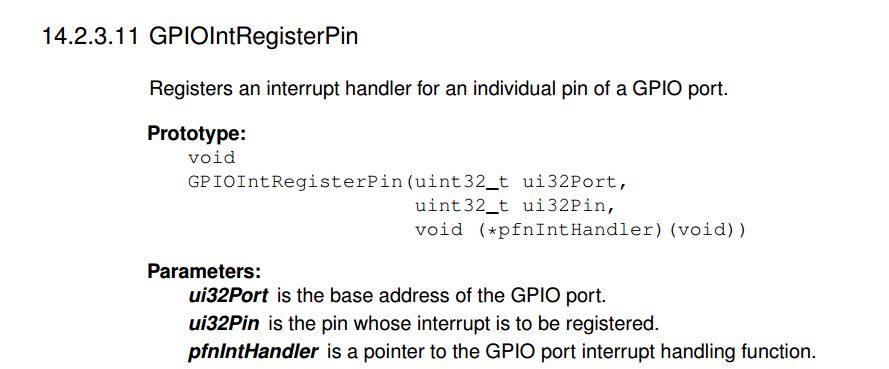We are using Tivaware version 2.1.2.111 with a TM4C1292NCZAD processor and have an issue and a feature request for the GPIO library.
Issue: The Tivaware call to GPIOIntRegister() asserts because the call to _GPIOIntNumberGet() returns zero.
The _GPIOIntNumberGet() function returns zero when the calling function passes in GPIO_PORTR_BASE, GPIO_PORTS_BASE, or GPIO_PORTT_BASE because these entries are not defined in the g_ppui32GPIOIntMapSnowflake map.
Feature Request: We would like a function to register/unregister individual pin interrupts for port P and port Q.
We wish to take advantage of the individual pin interrupts available on port P and port Q.
So it would be convenient if Tivaware could provide something like GPIOIntRegisterPin(ui32Port,, ui8Pin, void (*pfnIntHandler)(void)) and GPIOIntUnregisterPin(ui32Port,, ui8Pin) functions to do this.
Thanks!
Dominic


